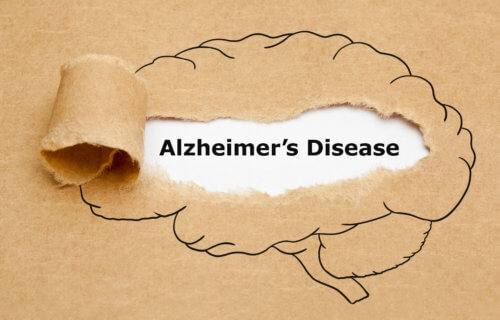Authors: “We expect that our findings will open up a new pathway to the creation of new drugs for the treatment of dementia caused by Alzheimer’s disease.”
TOKYO – Although scientists know many of the underlying symptoms which trigger Alzheimer’s disease, a cure remains elusive. Now, a new study suggests that oxytocin, a hormone best known for promoting feelings of love and wellbeing, may reverse some of the damage the degenerative illness causes.
Alzheimer’s disease is a progressive brain disease causing the continuous deterioration of mental functions. Its primary symptoms include severely impaired thinking, memory loss, and confusion.
One of the primary culprits in Alzheimer’s is a protein known as amyloid β (Aβ). Researchers say Aβ clumps together to form plaques around neurons in the brain. These plaque build-ups disrupt normal neuron function and triggers the degeneration.
A great deal of research focuses on the accumulation of Aβ plaques in the brain’s hippocampus. This region is believed to be the brain’s primary learning and memory center.
Studies find plaque clumps in the hippocampus disrupt a characteristic of neurons called synaptic plasticity, or the ability of brain synapses to adapt to different levels of neural activity over time. Synaptic plasticity is thought to play a crucial role in both learning and retaining memory.
Proving the love hormone works
Researchers at the Tokyo University of Science confirm Aβ impairs synaptic plasticity after examining plaque build-ups in mouse hippocampal slices. Their study then adds oxytocin to the animal’s brains, which reveals the hormone can reverse impairments to those synapses. When researchers block oxytocin receptors, they find oxytocin can’t reverse the damage of Aβ proteins, confirming the love hormone’s benefits.
The team believes oxytocin might also reverse this damage by impacting calcium activity. Oxytocin is known to facilitate calcium influx in cells, which is thought to play a key role in neural signaling and memory formation. Moreover, previous studies also suggest that Aβ might suppress calcium activity.
Based on these findings, researchers blocked the receptors responsible for calcium transport across cell membranes. When they did so, oxytocin was again unable to reverse the negative effects of Aβ on synaptic plasticity.
The study authors suggest that oxytocin can benefit the brain through both of these channels, reversing Aβ protein damage.
Hope for millions
“This is the first study in the world that has shown that oxytocin can reverse Aβ-induced impairments in the mouse hippocampus,” says lead author Akiyoshi Saitoh in a media release. “At present, there are no sufficiently satisfactory drugs to treat dementia, and new therapies with novel mechanisms of action are desired.”
Saitoh adds oxytocin may give doctors hope of creating a drug which focuses on the memory disrupting effects of Alzheimer’s. The World Health Organization says there around 50 million people suffering with the disease across the globe.
“We expect that our findings will open up a new pathway to the creation of new drugs for the treatment of dementia caused by Alzheimer’s disease.”
The study is published in the journal Biochemical and Biophysical Research Communication.
Like studies? Follow us on Facebook!
